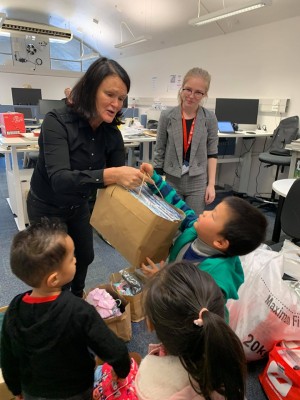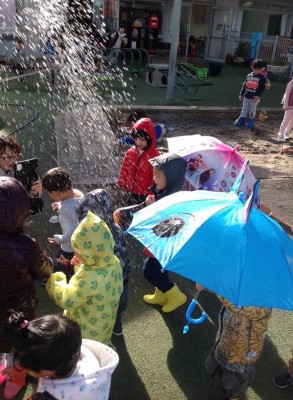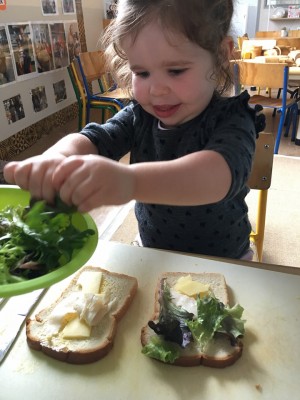What do I look for when searching for an ECE centre?
18 June 2020
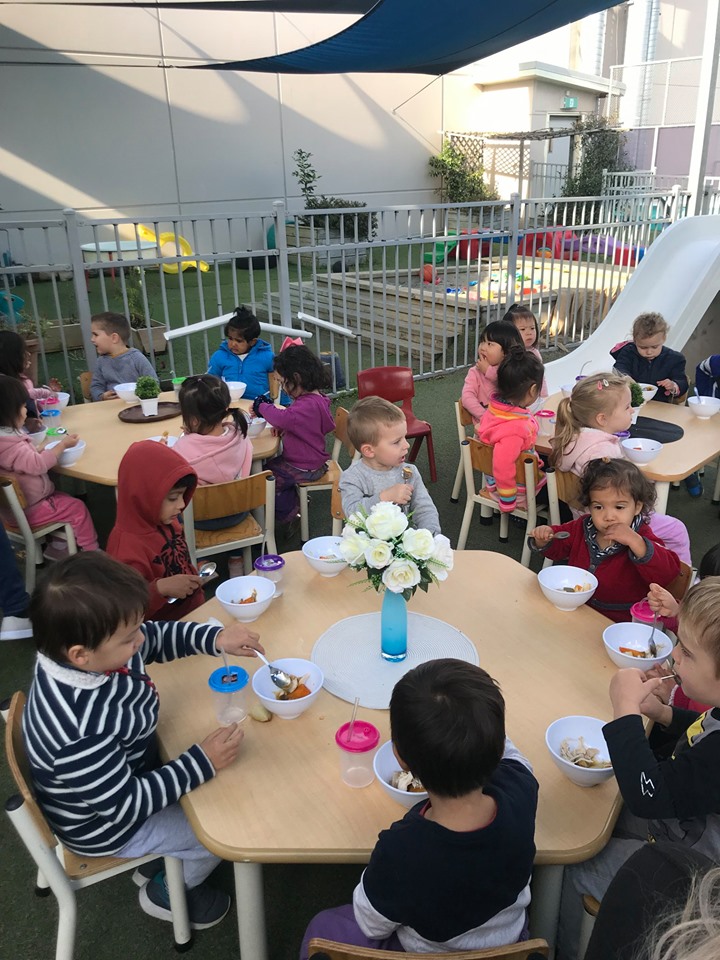
We understand that finding the right Early Childhood Centre for your family is a daunting task! Each centre offers something unique and defining the “best” centre in Auckland is very subjective. What is best for your child and your family may not be a priority for another child and their family.
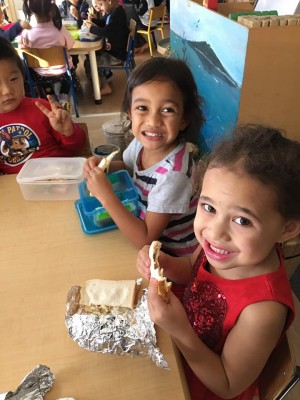
We offer high-quality care and education for children. Their well-being is central to every decision we make. We meet many parents and families, and there are some common questions that we hear often. When you require childcare, we suggest that you visit a few centres that fit your needs and see how you feel about them. Here are some questions you could ask to help you get started:
What are your teacher to child ratios?
The Ministry of Education’s current ratio is one teacher to five children for all children aged under two. The Government is currently reviewing these numbers, as many teachers feel this is inadequate. Here at Treetops, our ratios are a maximum of one teacher to four children under two years of age.
Our over two-year-old ratios vary between the classes and are based on the needs of our children. The Ministry of Education’s current ratio is one teacher to ten children over two. Treetops ratios for over two-year-olds range between one teacher to six children and one teacher to nine children for our four-year-olds.
How many qualified teachers do you have?
The legal requirement from the Ministry of Education is that we have at least 50%, qualified teachers. Again, we focus on quality care and education and believe that this minimum is just that – a minimum. All Treetops centres have a minimum of 80% qualified teachers at any one time – often running at 90-100% depending on how many children are enrolled on a given day.
Qualifications aren’t the only aspect of quality teaching and learning. All of our teachers are handpicked for their love of children, and their drive to continually update their learning as teachers, no matter what their qualification level.
It is important to note that even if we were operating at 100% qualified teachers, we might still have unqualified teachers, or teachers-in-training working with us because we maintain higher than a necessary teacher-to-child ratios overall.
What room will my child be in?
We take into account more than just a child’s age when deciding, alongside parents, what room your child will be settled into. We have a broad age range for our rooms, but as we recognise all children develop at different times, we prefer to talk to you and gauge which room would be the best fit for your child.
What if my child doesn’t speak English?
At Treetops Early Learning Centres, we celebrate diversity. Part of offering quality care and education programme is the importance we place on creating an inclusive environment for all of our children. Many of our teachers speak more than one language, and we have many children join our centres who do not have English as a first language.
First of all, don’t worry! Our teachers are skilled at using non-verbal communication methods, as well as modelling verbal language for children. If your family speaks a language that we are unfamiliar with, our teachers will ask you for some basic words and information so that we can ensure your child develops a sense of well-being in our centre. They will begin to learn English from their teachers and friends as they engage in play.
If we need to use other methods to communicate with you or your family members, we will make this happen!
How long has your team been here? What is the staff turnover like?
It is important to note that although teachers will move and sometimes change within a centre, a stable and experienced team gives a great beginning for your child. A team where members are in tune with each other is able to offer high quality, consistent care and education for children.
At Treetops ELC, we are proud that many of our teachers have been with us for a long period of time. Several of us have been here for 10-15 years!
What is primary caregiving, and why is this beneficial for my child?
Having a primary caregiver enables children to have a secure attachment with a teacher who will be able to read and interpret their cues, ensuring their needs are promptly met. Parents and whānau will build a closer relationship with their child’s primary caregiver, enabling deeper communication and understanding between whānau and the centre.
Throughout their daily routine, children are interacting with other teachers in learning experiences, mat times and meal times. The overall responsibility of the children is still with the whole team.
Primary caregiving lies not in the big things but in the little, everyday things. It means that children get uninterrupted one-on-one time with their caregivers. It is spending time getting to know and understand your family. We hope that you are happy to talk with anyone of the teachers but please seek out your child’s Primary caregiver for a really valuable chat.
Children are still interacting with and developing relationships with all of the teachers within the room. If your child’s primary caregiver is away from the centre, they will be cared for by another teacher within the room, and their routines will be maintained.
What are the routines in each room?
We like to describe our routines as daily rhythms. Rituals are an important part of a child’s day and create a sense of predictability for children. Often children find this calming, and they tell time through the rituals that happen at the same time each day (e.g. Mum comes back after I eat lunch, have a sleep and play with my friends).
Each of our rooms operates slightly differently, and rhythms are created around the individual children who are in our spaces.
Why is play-based learning important?
We focus on rituals and making sure our days have lots of unstructured play opportunities. We believe that quality care and education means we follow our children’s interests. In practice this means that while the day has structured moments, the children are free to choose their own play. By following the child’s lead, our programme is developed through careful observation of children and planning how to extend these interests.
At Treetops Early Learning Centres, we believe that children learn through play, that play is their ‘work’. You are welcome to speak to any of our teachers about the planning in their rooms and how they identify and plan for children’s learning.
“Learning is not the product of teaching. Learning is the product of learner activity.”
John Holt
This is a really good chance for you to look at what aligns with your own parenting beliefs. Do you want structured learning for your child or is free play the most important thing for you?
How many transitions will my child go through in their time at the centre?
Any transition within an ECE setting is a change for children. Your child will transition into our centre, from your home to begin with. They will then transition between our rooms. Our Botany and Junction centres have three rooms, while our Pukekohe centre has four rooms. Depending on what age/stage your child joins us, they may have several transitions throughout our centre. At the end of their learning journey with us, children then transition into primary school.
What does the transition process into the centre look like?
We believe a slow, child-led transition process is best to settle your child into a centre. These transitions can take up to 2-3 weeks, with multiple visits. The transition process into the centre should be unhurried and be treated as a special time to get to know your child’s teachers. Ultimately your primary caregiver will discuss your child’s progress and oversee this transition process. You, as a trusted caregiver for your child, should partake in all of the key rituals and care moments of your child’s day initially within the centre space, before you pass those care moments onto your child’s teacher.
For example, with a nappy change ritual, it might mean that you initially change your child’s nappy in our centre. This introduces your child to the space with their trusted caregiver (yourself). A teacher may watch the second or third change so they can see how your child enjoys the ritual. This idea behind this is to introduce their new caregiver while maintaining consistency and familiarity with you actually doing the nappy change. Finally, once the child is ready, the trust is passed over to the teacher who will change the nappy and take the lead role.
We know that for some parents and children, several visits may be enough for them to feel settled and happy in our environment. For this reason, we make recommendations, but there is no set number of visits because every child and family is different. The key is to remain in communication with your child’s teacher to ensure everyone is happy. Remember, you know your child best!
Do you provide food? Can I see a sample menu?
Absolutely! We have a chef onsite at each of our centres because we believe that a well-nourished child can learn and develop in a positive manner. We are happy to discuss any dietary requirements with you. Our menu provides healthy, nutritious food including morning tea, afternoon tea and a cooked meal for lunch. This includes options to cater for infants, vegetarians and an allergy menu, which changes depending on the requirements of our children. We specialise in creating a safe and inclusive environment, so if your child has any requirements above this, our chef will work with you to create an appropriate and nutritious menu for your child.
How will I find out about my child’s learning?
At Treetops Early Learning Centres, part of providing a quality learning environment is ensuring our parents and families are kept up to date with their child’s learning and development. We believe that children learn best when we are in partnership with you. Our teachers employ a range of methods to make sure open communication is always maintained.
You are welcome to talk to our teachers at any time about your child’s development. If you arrive or leave at busy times, you can either make an appointment to come in, or your child’s teacher can give you a phone call when it is convenient.
Our teacher’s planning books are always available in the classrooms for families and parents to read and to contribute – we love your feedback! When you enter our classrooms, you will see photographs and documentation of children’s learning around the room. Please take time to look at and discuss these with your child and their teachers.
We use Educa, an online portfolio system that you can log into and read your child’s learning stories. This can be shared with grandparents and extended family members to keep them connected to our centre.
We offer opportunities throughout the year for parents and families to come into our centre and celebrate learning with us! Keep an eye out for these events in our newsletters, which are published each month.
Consider what aligns with your parenting style
Take time to think about your parenting style and how you want your child cared for when they are not with you. While we know that we offer quality care and education for children, not all of our philosophy will align with all of yours. Think about whether you are happy for your child to play outside, whether you are happy with the group sizes, whether you want your child to be engaged in messy play. It is really important that you consider the fit of care to your own philosophies as you will find yourself surrounded by like-minded parents and caregivers.
When should I begin to look for child care?
It is never too early to start searching! We have people visiting when they are still pregnant. It can help to get your name down early, especially if you don’t have flexibility in your dates or days. We recommend that you visit a few centres to get a feel for them, and then revisit the ones that you shortlist. We invite you to spend time in our rooms and get to know our teachers. If you are comfortable, your child will be too!
Will it matter if my child is full-time or part-time?
No, we can cater for both full-time and part-time care. If you want part-time care, there may be a waiting period for this, even if we have a full-time space available. This is because we ensure that our teachers have a balanced number of children to care for at any one time so that we don’t compromise our quality ratios.
Do I need to make an appointment?
We ask that if you want to visit our under two’s room, you make an appointment because their care rituals need to remain uninterrupted and their well-being around strangers is a priority. There are certain times of the day where children are engaging in authentic rituals, and we do not interrupt these. If you arrive at these times, you may be asked to wait or to come back at another time. An example of this would be if the children are settling to sleep; we respect their well-being and wouldn’t take visitors into their space at this time.
Should I bring my child with me?
We welcome your child to visit alongside you and request that they come for at least one visit before enrolling. However, some families enjoy having the first visit alone, so that they can focus on working through any questions they may have before bringing their child in at a later date. Whatever suits you and your family is the best option for you.
What is the enrolment process?
We require you to visit the centre in person, to meet our teachers and see our rooms before we confirm enrolment. Once a space is confirmed, an enrolment pack will be given to you. You need to complete this, pay the enrolment fee and first week’s fees. You will also need to bring in identification and immunisations for the team to copy and file. The first week’s fees are credited to your account once you are invoiced for your first week. We will then discuss your visits and official start date.
Your first visit will be an hour or so with your child exploring our environment and enjoying it. From there, you will have the remaining visits scheduled along with a process of working through care moments and important parts of your child’s day, building up to their first ‘official’ day with us. All visits to the centre are at no charge.
Once your child starts with us, you are welcome to call at any time to see how they are doing. Our teachers will take lots of photographs for you and keep you informed of their settling progress.
If you’re still uncertain about the centre you are visiting, we recommend you spend some more time there and perhaps ask some further questions to deepen your understanding of how the centre runs.
Once you have completed your questions, compiled your notes, compared the centres you are interested in and used your checklist to make sure you haven’t missed anything, the best decision you can make is based on your intuition. How do you feel about the centre? How do you feel about the teachers and the staff? Did you feel welcome?
Remember, you are the expert on your child, you know them best!
We look forward to welcoming you to one of our Treetops Centres soon.
We would like to thank Nikki Gardyne from Oma Rāpeti, in Auckland, for the inspiration for this post. Please visit Oma Rāpeti to see her original blog post.
Natasha Rawiri
Director
